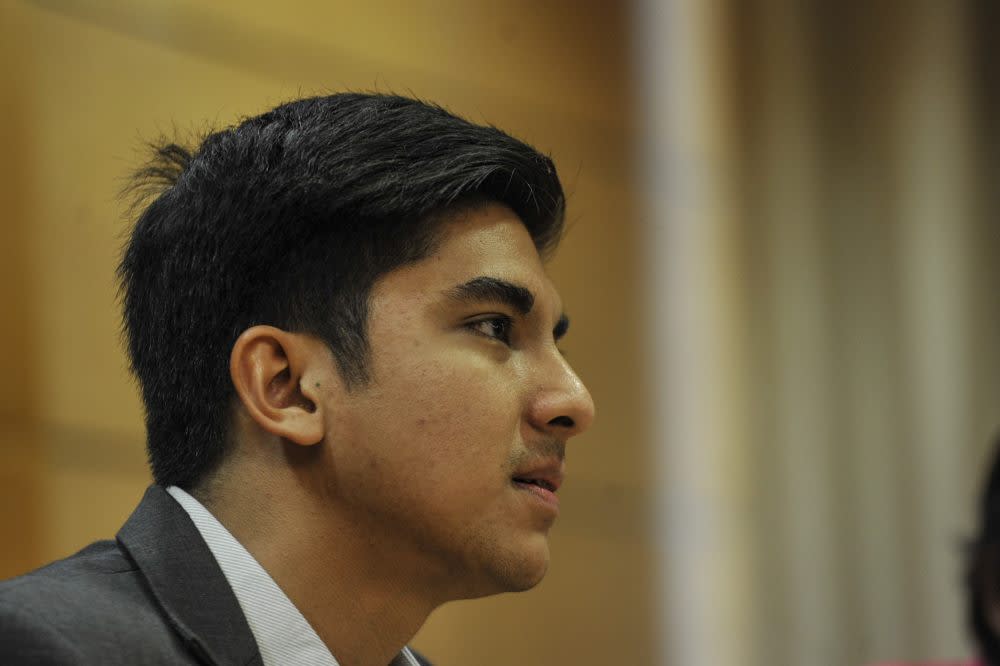Syed Saddiq insists Malaysia’s glove makers pay windfall tax of ‘just’ RM4.8b, cites Top Glove’s Covid-19 cluster as justification

KUALA LUMPUR, Nov 23 — The major glove producers in Malaysia should pay a windfall tax on their huge profits amid the Covid-19 pandemic to help the nation, as it would cost them “only” around RM4.8 billion, Muar MP Syed Saddiq Abdul Rahman insisted today.
Syed Saddiq, a former youth and sports minister, went on to cite the growth in numbers of Covid-19 cases linked to local glove maker Top Glove as one of the reasons why he had no sympathy for big companies.
Syed Saddiq said glove companies had made “supernormal profits” during the Covid-19 pandemic, which he said justified them paying a windfall tax on the higher than normal profits.
Syed Saddiq highlighted that the Malaysian government had in the past collected windfall tax from different industries.
“If in 1998 we imposed windfall tax on plantation companies, in 2008 independent power producer (IPP) companies also had to pay, why is it in 2020 we cannot impose this tax on rubber glove companies that have already become the biggest companies in Malaysia during Covid-19?
“I will not bow to big companies. They make profits in Malaysia, they should help the country more so during such difficult times,” he argued.
“I will not defend rich companies. They have already enjoyed tens of billions of ringgit in profits, but only donate RM400 million to the country.
“Paying this windfall tax too will only be an amount of around RM4.8 billion only,” he added.
Syed Saddiq also sought to address arguments that may be raised against imposing windfall tax on glove makers, arguing that they do not take care of employees’ welfare.
Syed Saddiq had highlighted the example of Top Glove, which he accused of having failed to protect their workers’ health and of failing to close down their factories even after the Teratai cluster linked to the company was announced early this month.
As for the argument that such companies already pay corporate tax, Syed Saddiq said that such taxes were paid during normal times, but noted that the companies were now making “supernormal” profits.
Also in response to the argument that the glove makers may move out of Malaysia to do business if compelled to pay a windfall tax, Syed Saddiq said the windfall tax is just a “one-off” tax and noted that companies from the plantation and IPP sectors that had paid such taxes in the past were still located in Malaysia.
“I believe all this is not an excuse for big companies that make big profits (especially during Covid-19) to not to pay additional tax as they have obtained extraordinary profits,” he said.
Last week, Syed Saddiq had in debating the Budget 2021 proposed the windfall tax on glove makers, claiming that such companies have both a moral and legal responsibility to “return” money to the public by paying this tax to the government.
In his November 6 budget speech, Finance Minister Datuk Seri Tengku Zafrul Abdul Aziz said Malaysia’s top four glove manufacturing companies ― Top Glove Corporation Bhd, Hartalega Holdings Bhd, Supermax Corporation Bhd and Kossan Rubber Industries Bhd ― have agreed to commit to collectively contribute RM400 million to help the government to fund the Covid-19 fight, including health equipment and Covid-19 vaccine costs.
In the Teratai cluster linked to Top Glove workers which was announced on November 7, a total of 2,524 Covid-19 positive cases have so far been identified, including 1,067 new cases announced today. Out of the 2,524, the majority or 2,360 are foreigners while 164 are Malaysians, with most of these cases from factory workers in the Meru, Klang area.
The Health Ministry today said an enhanced movement control order (EMCO) had been implemented since November 17 at the workers’ hostels and residences with around 5,900 under this order, but said Top Glove’s factory management has provided information that the company’s total number of workers is around 13,000 persons working at 28 different factory buildings.
The government today said it would close the 28 Top Glove factories in stages to enable Covid-19 screening to be carried out.

Related Articles German business morale dips again on virus spike Malaysia’s Covid-19 cases burst past 2,000-mark as Selangor racks up 1,623 new infections Travel, commodity stocks boost London shares on vaccine hopes



